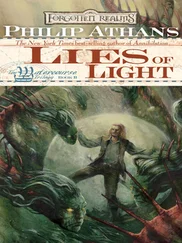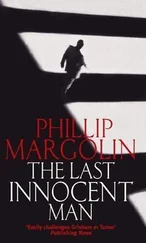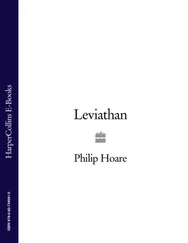The mob had tailored their insults to the Girlingites, and their actions had the air of a concerted assault rather than the casual vandalism of bored young men with nothing better to do on a Sunday night in a small country village. The explanation became clear when Benham told the court that such meetings were held every three weeks at his house.
‘We have two or three places where we worship under the head of Mrs Girling. Singing hymns is part of the services, which were usually well attended. I have never seen anyone on the floor fainting. Mrs Girling has a husband and two children at Ipswich. The rooms will hold one hundred people.’
Mr Jewesson, acting for the defence, asked, ‘You’re one of the disciples, ain’t you?’, his biblical overtones somewhat undermined by his grammar.
‘Yes, and thank God for it,’ replied Benham, who proceeded to give intriguing details of the sect and the power of their leader. ‘There is silence generally when Mrs Girling reads the word of God … It is customary for any person to pray who likes. I never saw two or three praying at once – one stopped till another had finished. Mrs Girling was the only one that read and expounded.’ He admitted, modestly, ‘I am not sufficiently high to read and expound the Word of God; I wish I was.’
It wasn’t clear whether he was referring to his stature or his spiritual status. Mary Ann had first come to his house eighteen months ago – ‘Eliza Folkard sometimes expounded, but not publicly’ – and although he had never seen anyone faint at any of these services, ‘I have seen them fall under the power of God.’ As an elder of the Children of God, Benham sought to counter some of the more extraordinary rumours already gathering around them. He told the court that their services differed little from those of other dissenting chapels:
‘It is just the same with the exception that other people give out a text while Mrs Girling only expounds the word of God.’
Yet there was the sense of something other at work, not least in the shape of Mary Ann herself and the transcendence to which she aspired.
‘By our people I mean the people who follow Mrs Girling. We subscribe money amongst ourselves. We only provide Mrs Girling with clothes and boots. We pay nothing for the rooms; I give mine gratis.’
‘You speak of falling down,’ remarked Mr Corrance, ‘when does that occur?’
‘Very often, sir,’ replied Benham. ‘We see people fall down by the power of God.’
‘What do you mean by that?’ asked Corrance.
‘They go into a trance, sir, and can see all things that are going on around them. We allow them to remain till they come to themselves.’ Benham insisted that they never disturbed anyone: ‘We have never recognised these roughs as part of our congregation … They are the Devil’s congregation, and ours are the children of God.’
This testimony was supported by key figures in the movement: Alfred Folkard, Eliza’s father; Cornelius Chase, a twenty-seven-year-old coachmaker, and Isaac Batho, postmaster and shoemaker, both of Benhall; and Sally Spall, wife of Robert, a machinist from Hascheston, with whom Mary Ann had been staying during her missionary work. Sally Spall bore witness to the ‘kiss of charity’ which had prompted the gang’s sarcastic amorousness.
‘It is usual to kiss each other indiscriminately?’ Mr Jewesson asked Mrs Spall.
‘Yes, sir,’ she replied.
‘Both males and females?’ inquired Mr Corrance.
‘Both, sir.’
‘Men, women and children, I suppose?’ prompted Jewesson.
‘Yes, sir.’
This sounded decidedly immoral, so Mr Hill stepped in, acting on behalf of the Girlingites: ‘I suppose it was only a brotherly and sisterly expression of affection?’
‘That’s all,’ said Mrs Spall.
‘You don’t rush into just anyone’s arms – it is only the members of the congregation?’
‘It’s a salutation, I suppose,’ remarked the Reverend Pooley.
‘Just so, sir,’ said Mr Hill.
Mary Ann was as much on trial here as any of her potential assailants. ‘The members of this sect were led by a woman,’ Jewesson was reported as saying, ‘of whom, without imputing anything wrong to her, he might say that it was to be regretted she should leave her husband and children, and put herself forward in the way she did, creating as she must necessarily do so, a disturbance wherever she went.’ Thus Mary Ann was portrayed as a troublemaker, a woman who, by her very sex, sought to disturb the status quo. Jewesson went on to claim that his clients had gone to the service as potential converts, ‘and the confusion which took place was not caused by them or anyone connected with them’. It was a lame excuse. Hill said his client was willing to drop the charges if his expenses – and the fine – were paid there and then; and in an extraordinary intervention which to some seemed to compromise the impartiality of the Bench, Mr Corrance himself advanced the required sum for the defendants.
A legal resolution had been reached, but the wider question of the Girlingites and their freedom to worship remained. The Woodbridge Reporter may have been a local paper, but it reported on national issues: ‘the Rights of Women’; ‘Spirit Rapping Extraordinary in Woodbridge’ (which turned out to be a skit advertising alcohol); Primitive Methodism; the vaccination debate; and emigration, ‘a subject uppermost in men’s minds now’. Disturbing events across the Channel – the ‘Literary, Scientific, and Artistic Communists’ in the Paris Commune – sat alongside reports of riots in Dublin and an apocalyptic editorial on cholera, ‘the most destructive of human diseases’, whose invasion no ‘“streak of silver sea”’ could prevent. Amid such signs and wonders – as if plague and famine might yet sweep the land, just as the sea could break its defences – the appearance of a local prophetess was of more than a little interest; especially when her crusade provoked a riot at the Mechanics’ Institute in Woodbridge.
Mechanics’ institutes were established in the 1820s as educational centres for artisans. Often used for lectures on sectarian beliefs and spiritualism, they provided the working man with ‘an opportunity to ride the wave of the new pseudo-sciences’. On 2 May 1871, the Reporter noted that ‘some printed handbills circulated in the town announced that Mrs Girling would preach the Gospel in the Lecture Hall, on Tuesday evening, at half-past seven’. Such advance publicity ensured that the hall was packed, with a crowd of one hundred clamouring for admission, and ‘a great number who went were not prompted with the desire of hearing the Gospel preached …’ Mr Joseph Cullingford attempted to address the crowd, ‘but was frequently interrupted. Mrs Girling stood on the centre of the platform, and by her side was … a Miss Folkard from Parham.’ While many were still trying to get in – some by forcing the door – others were trying to get out, overcome by the heat and noise inside. It was the first indication of a mass reaction to the Girlingite gospel: a frightening spectacle to some; to others, rather farcical. Mr Cullingford tried to leave the hall, but as he did so the door was suddenly locked, leaving his coat tails trapped and the unfortunate man ‘subject to the rude remarks of the roughs for some time’ while he banged on the door unheard, such was the furore within.
Meanwhile, Mary Ann had begun to speak. She told the audience that she lived at 58 Victoria Street, London Road, Ipswich, at which point a voice piped up, ‘Where is your husband?’, to roars of laughter. Mary Ann replied that she had his permission to speak the Word of God. Indeed, on the night of that year’s census, Mrs Girling was not at home with her husband, her seventeen-year-old daughter Mary Jane, now a dressmaker, and her son William, just fifteen but, like his father, already employed in the iron works. Instead she was roaming Suffolk – not preaching, but practising, as she declared. She was about to read from the Book of Revelations when a loud noise was heard outside and the door burst open, releasing Mr Cullingford’s coat. ‘Outsiders rushed in, insiders rushed out, jostling with each other, and a little fresh air was obtained by this indecorous breach. With some difficulty the door was shut and locked, but the interruption continued.’ Mary Ann said she’d been in worse places in Ipswich, but had never experienced such a disturbance. This merely made matters worse.
Читать дальше












